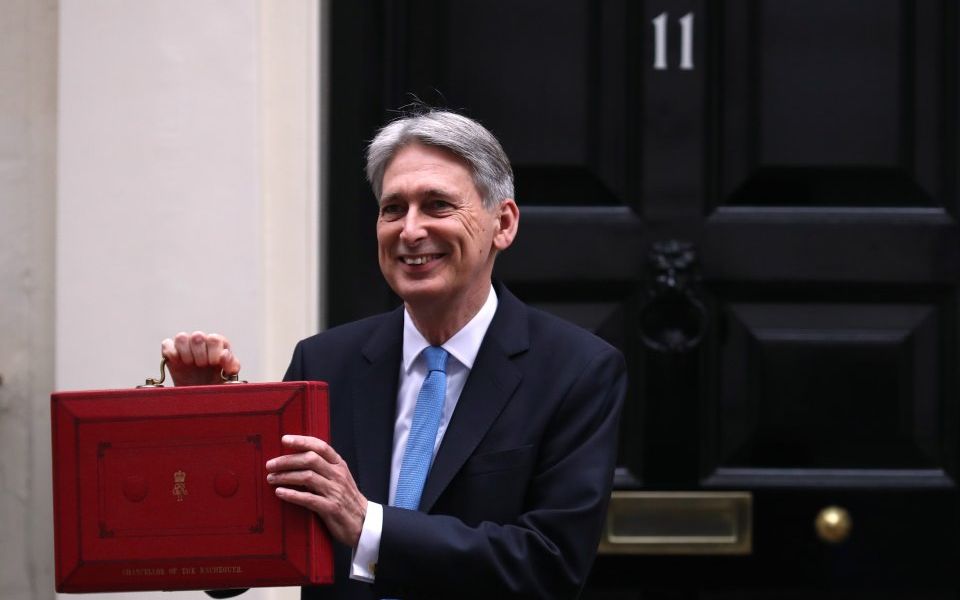
What can we expect from a pre-Brexit Annual Budget?

The Budget is the biggest date in the UK’s financial calendar where the Chancellor, Philip Hammond, will deliver the government’s plans for tax and spending for the 2019/2020 financial year, starting in April next year.
The Budget is a little unconventional this year as it usually falls on a Wednesday, but all you trick-or-treaters will be relieved to know it’s been brought forward to Monday – so you don’t have to miss out on all the festivities – although government has denied the date move has anything to do with Halloween.
Not to put the pressure on, but in the midst of uncertainty and rebellion among the Tory benches, Hammond really has his work cut out, since this will be the final budget before the UK officially leaves the European Union. So what can we expect on Monday afternoon?
- Tax break cuts for pension savers: it is quite likely the Chancellor will cut the £40,000 annual allowance to about £35,000, as he has already indicated the £39bn a year of tax breaks for pensions is costing the Treasury too much.
- Tax crackdown on fake self-employment: the Treasury is finalising plans to overhaul rules on self-employed national insurance contributions. The Chancellor will be targeting people who take on work through a private company when they should actually be treated as employees and pay the appropriate contributions. This overhaul of the rules should not be confused with the other crackdowns via dividend taxation and the IR35 rules.
- Will corporation tax rates be lowered? We are expecting the rate to be lowered to 17 percent by 2020. So it will be interesting to see if the Chancellor allows it to go ahead as he might well think more cuts will be attractive to business post-Brexit.
- Will income tax continue to be reduced? The personal allowance is expected to rise to £12,500 within the next two years. Will Hammond stop this tax cut going ahead to ironically fund the end of austerity?
- Could VAT be cut from e-books? Publishers have urged government to scrap VAT on all e-books, audiobooks and online newspaper and magazine subscriptions. This would mean a 20 percent reduction in tax currently applied to digital publications, which is not applied to print books. However, significant changes to VAT may be easier to plan once the shape of the UK’s future relationship with the EU is clearer.
- Will stamp duty be reduced? This may not happen as it might be sending the wrong signals, but revenue from stamp duty tax has declined in recent times, as the housing market has cooled. A decrease in the rate might well increase the stamp duty tax take if it encourages more buyers to complete.
- What will happen to inheritance tax? It is highly unlikely that the Chancellor will touch this tax. If he did, he would almost certainly receive significant opposition from his party. Although the take from inheritance tax has increased in recent years, it’s still far less important economically than it is sensitive politically.
- Off-shore gambling shake-up: the Chancellor could announce an increase in tax paid by offshore gambling companies, so that overseas operators offering online casino-type games – such as poker and blackjack – will have to pay increased remote gaming duty.
- Plastic bag tax increase: currently the charge is 5p per plastic bag and people have seemed to have more or less accepted this. It will be interesting to see if the 5p charge will rise to 10p per bag from Monday. And while currently the 5p levy is in support of environmental measures, that link may be severed with the increase becoming a part of general taxation.
- Digital Sales Tax: the joker in the pack, will the Chancellor follow Spain’s lead and introduce a 3 percent sales tax on digital services provided by companies such as Google and Facebook? The Diverted Profits Tax introduced three years ago has already seen a ten-fold increase in yields, and public opinion would probably back a targeted measure seen to rebalance the relationship between national governments and the big multinational internet companies. The EU has already proposed such a tax, but has also run up against the concern that is likely to be front and centre in the Chancellor’s thinking here: whether coincidentally or not, all the prime targets of such a tax are US businesses, and with Brexit looming the fragile ‘special relationship’ needs all the help it can get.
The country continues to wait with bated breath to see if this really is the end of austerity or whether we need to get past Brexit before we can enter an era of indulgence!